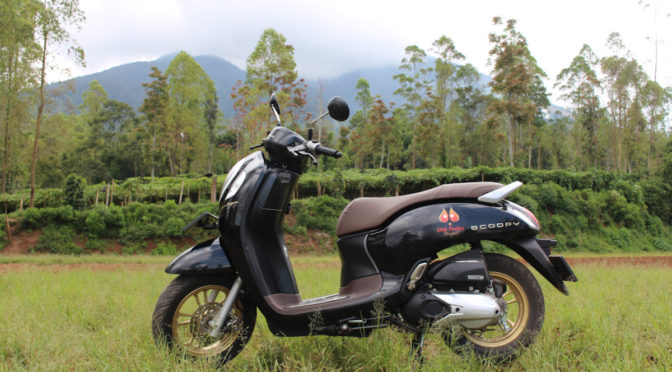When the COVID-19 pandemic hit Indonesia, like many other conservation NGOs we didn’t know what the consequences would be for the Little Fireface Project’s research station in West Java.
Foreign students and researchers were unable to travel to us and even Indonesian volunteers risked getting stuck in localised lockdowns across Indonesia. Many of our funders were struggling with their own running costs and unable to provide the vital funds needed to support our research. For the first few months the Java team were forced to limit themselves to a core team of staff and essential activities and as we were under a local lockdown, we were unable to use public transport that we generally relied upon to travel to town to buy supplies and meet with local authorities. Instead, we had to pay for private vehicles to transport us anywhere we needed to go, an unforeseen cost that was unsustainable long term. Although the management team had discussed the possibility of buying a new project bike (our old well-loved bike had been relegated to field use as it was no longer fit for the road), with such a significant loss in funding, the idea was well out of our reach. However, Plumploris, a slow loris conservation NGO supported by Dortmund Zoo in Germany, had been following our work in Indonesia and reached out with an offer of a donation for new equipment. After explaining our need for a new bike to continue our rescue and outreach work, they generously agreed to fund the full cost of a brand-new bike!
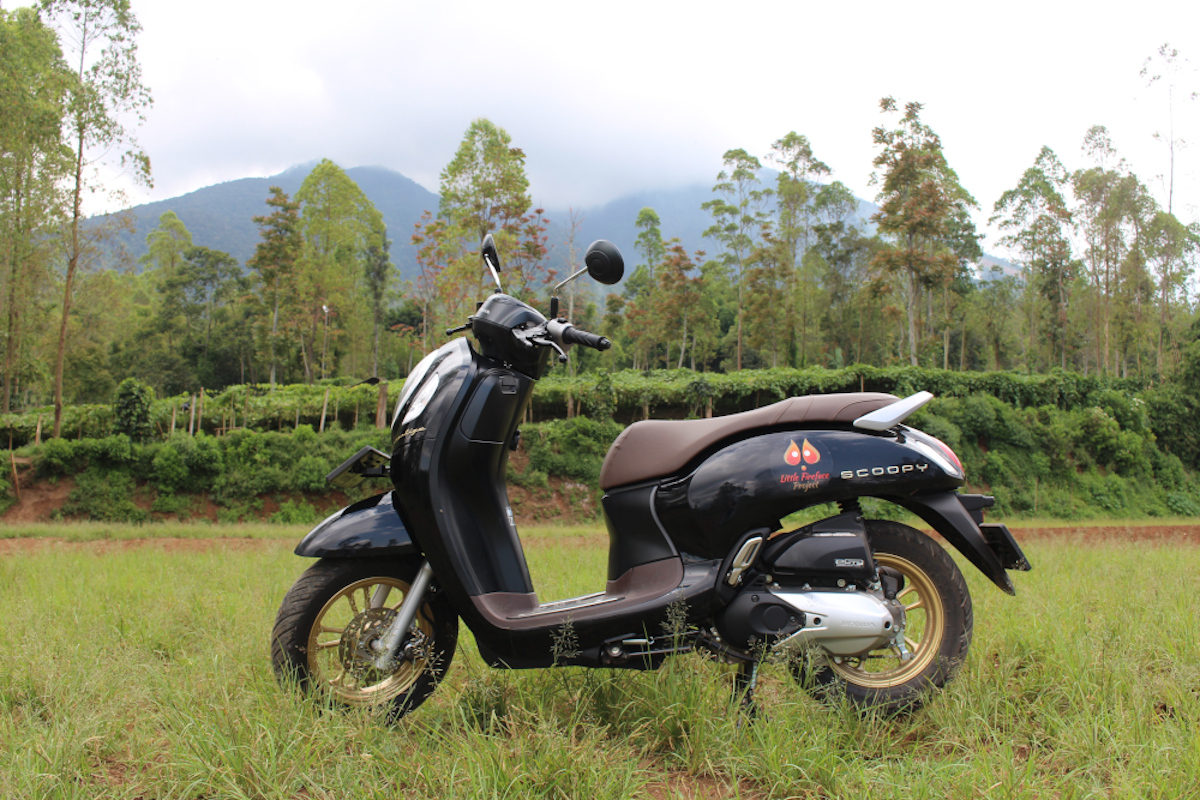
Enter Scoopy! We have now had Scoopy for almost six months and he has been on a number of adventures with us already. Not long after we purchased Scoopy we were contacted through Instagram about an injured slow loris. You might remember seeing our post about Beau the slow loris back in November last year. Amazingly, the young boy who contacted us knew about LFP after having an English lesson with ex-Field Station Coordinator Sophie in Garut, our local town. Luckily for Beau he remembered what Sophie had taught him about slow lorises and contacted us for help when he found a slow loris by the side of a busy road in Garut. The location was located 30km away from our research station and thanks to Scoopy we were able to hop straight on the bike and head out to rescue Beau. Sadly, Beau had suffered from electrocution and exhibited paralysis in the lower half of his body and signs of internal damage. After a quick medical examination on-site, we brought Beau back to the field station while we prepared him for the journey to the wildlife rescue and rehabilitation centre Cikananga. Unfortunately, Beau succumbed to his wounds while under treatment at Cikananga but we are so grateful that we were able to provide him food and comfort during his final hours.
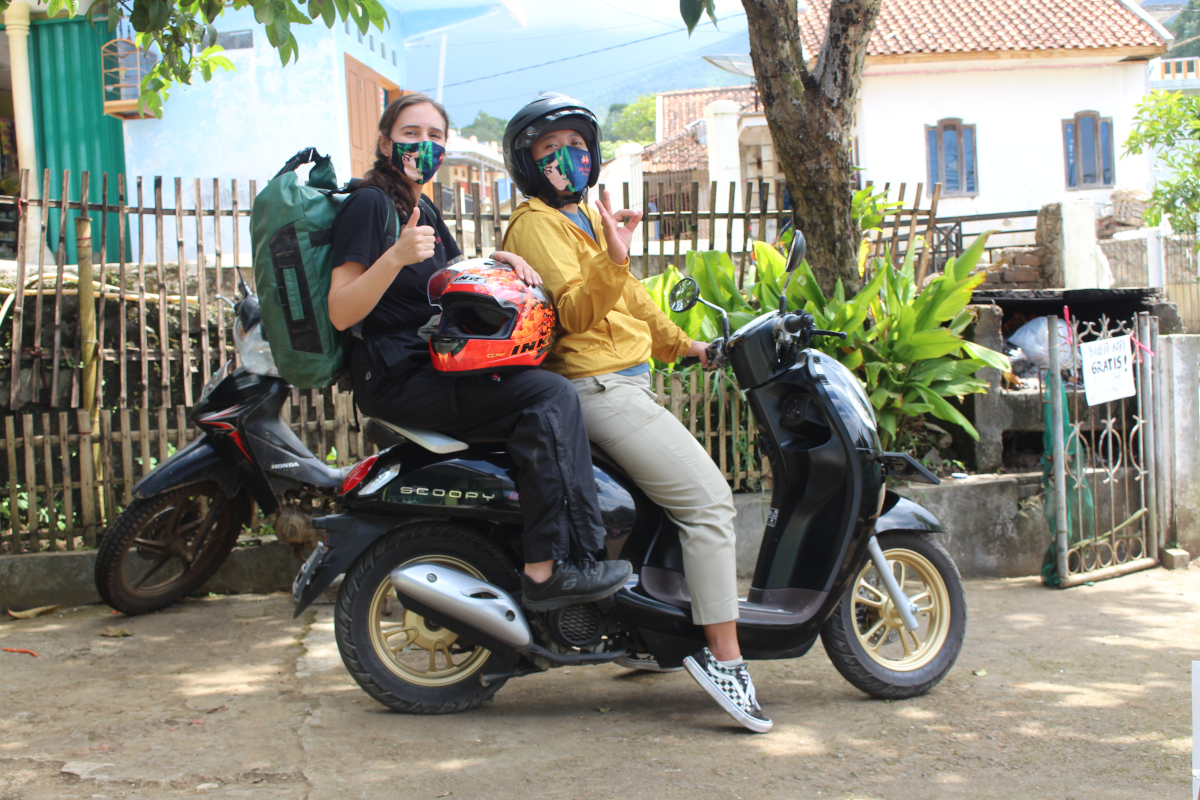
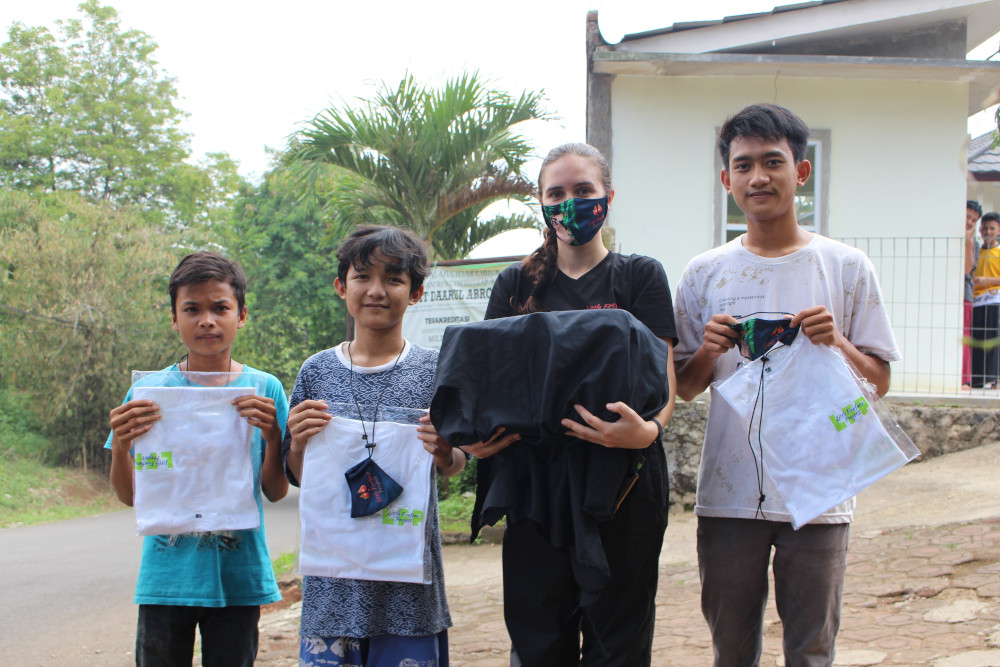
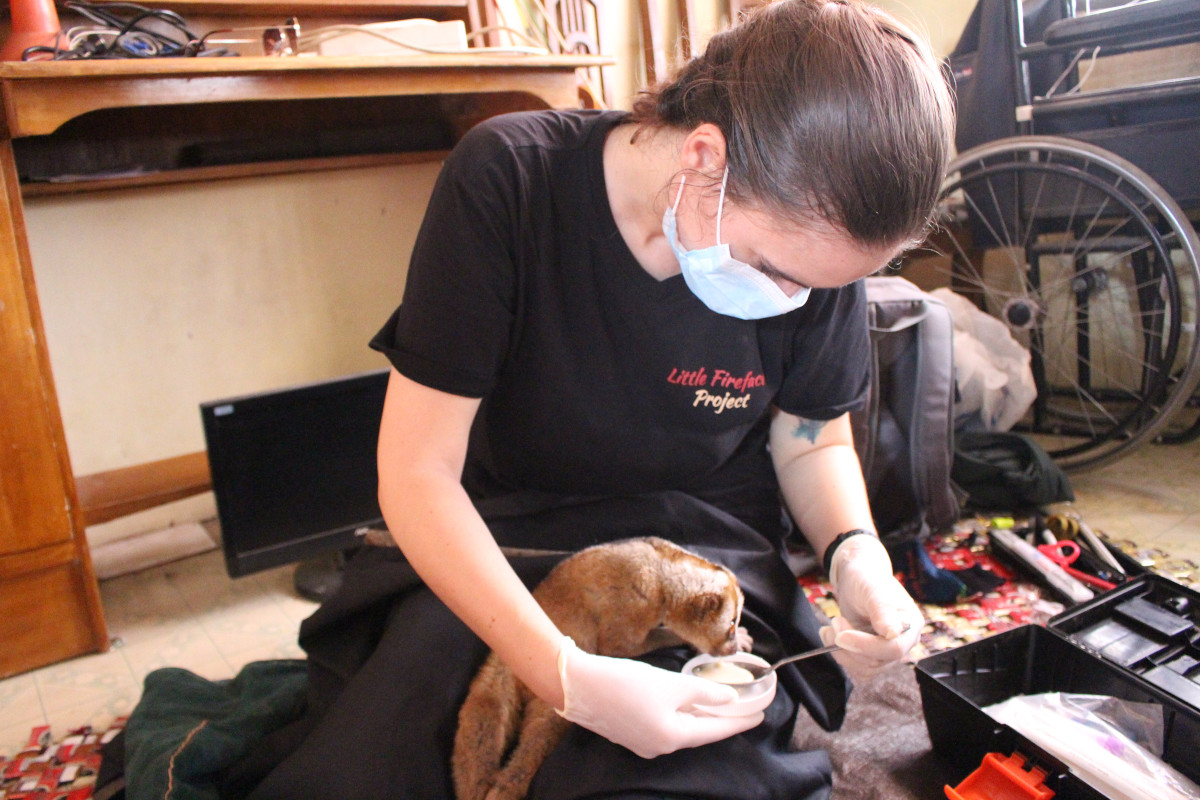
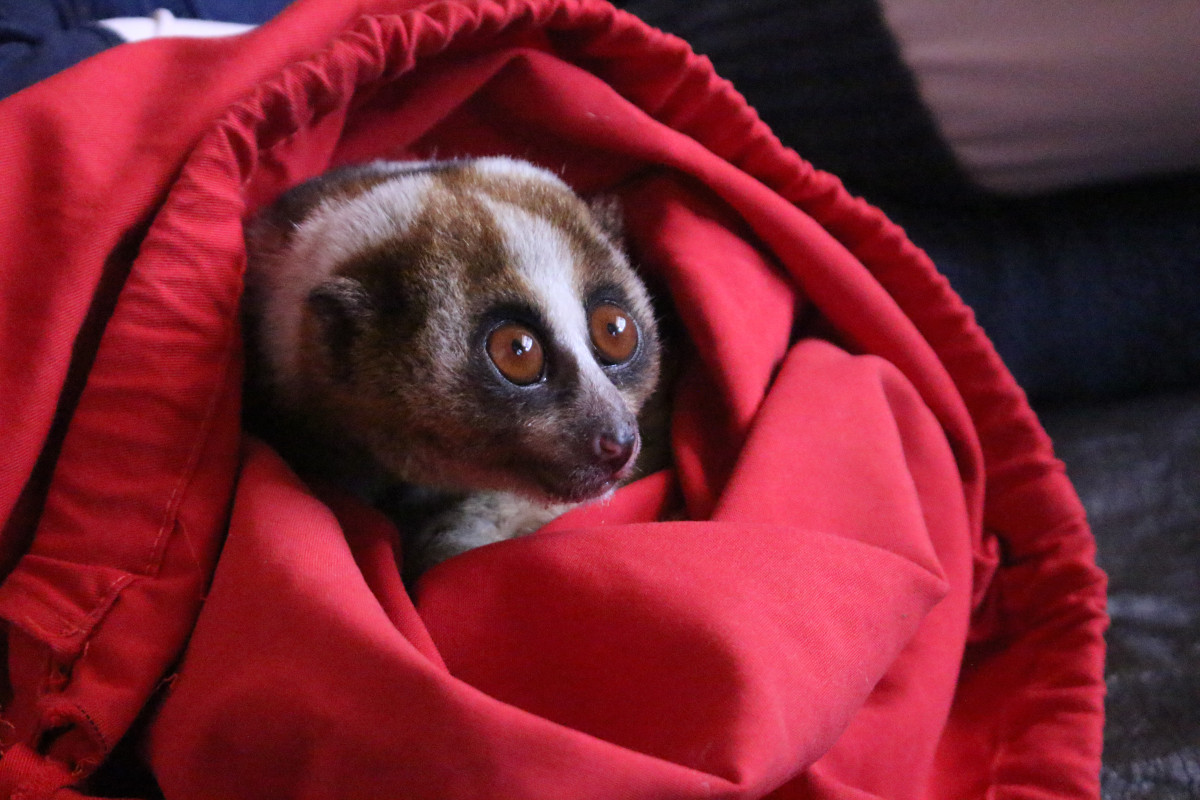
Scoopy’s next adventure had a much happier ending. Towards the end of 2020 our tracker Andri notified Katey of a Facebook post advertising a slow loris for sale in Garut. Katey was able to pass on this information to our local branch of BKSDA (the Ministry of Forestry) who conducted some investigations and were able to locate and confiscate the individual. We were called to the BKSDA office to conduct a medical examination where we found that they had actually confiscated two individuals! Both adult slow lorises, one male and female, the individuals were fit and healthy, although very hungry and dehydrated. As the individuals were free from wounds and still had their teeth intact it was decided that they were suitable for immediate release. The following night Katey and Tungga travelled on Scoopy back to the BKSDA office to collect the lorises and transport them to Mt Guntur for release. We released the individuals in an area of protected forest on the mountain with the support of BKSDA officials and we hope that they are thriving!
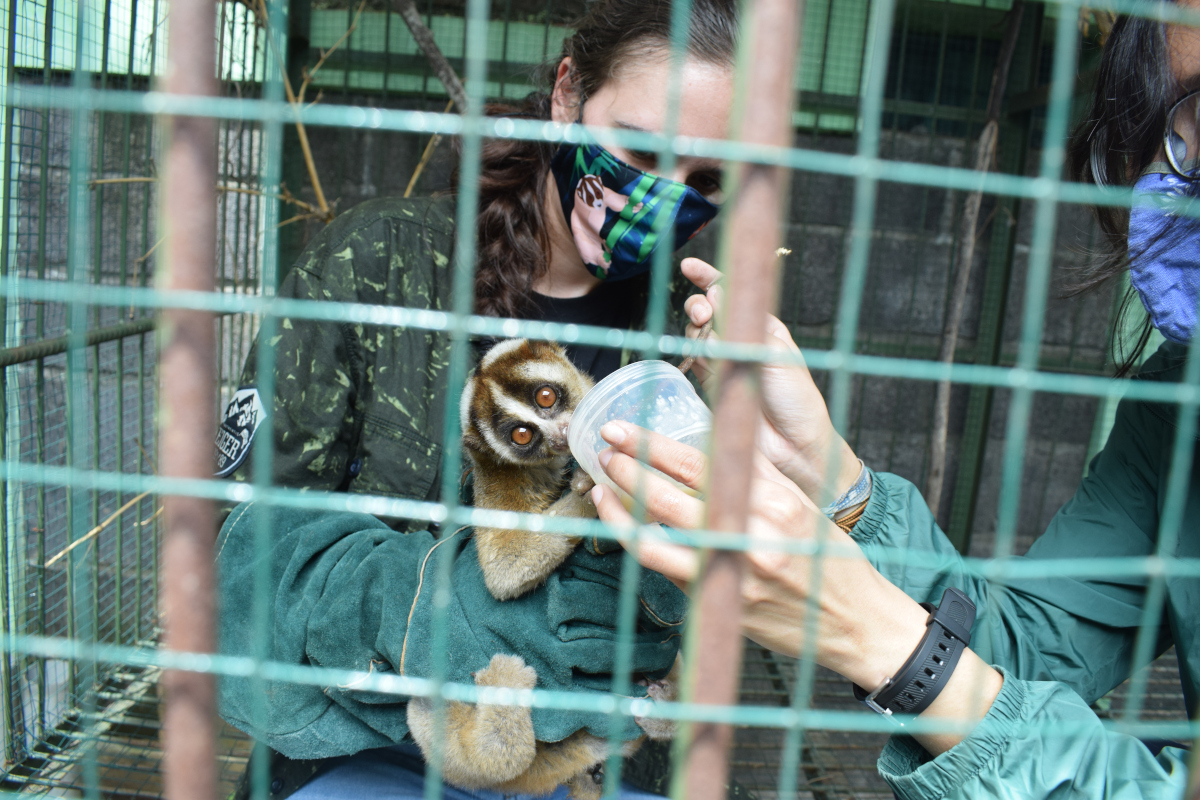
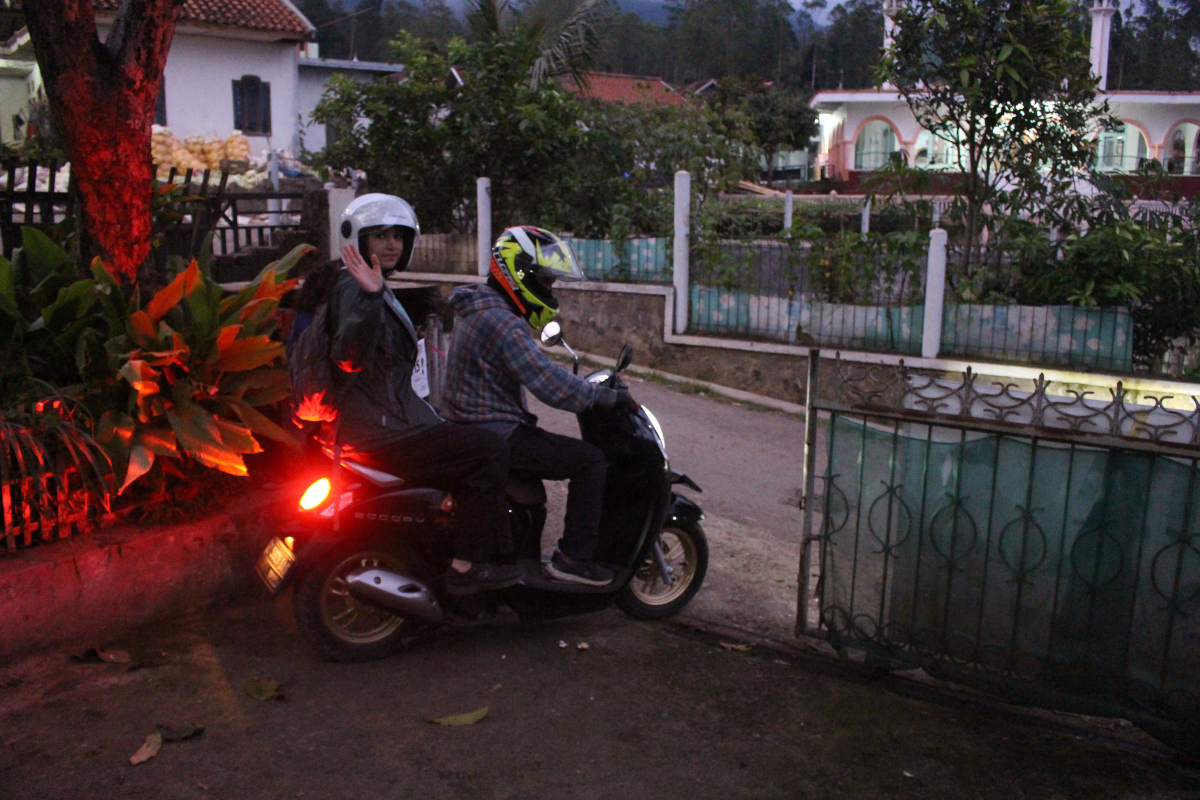
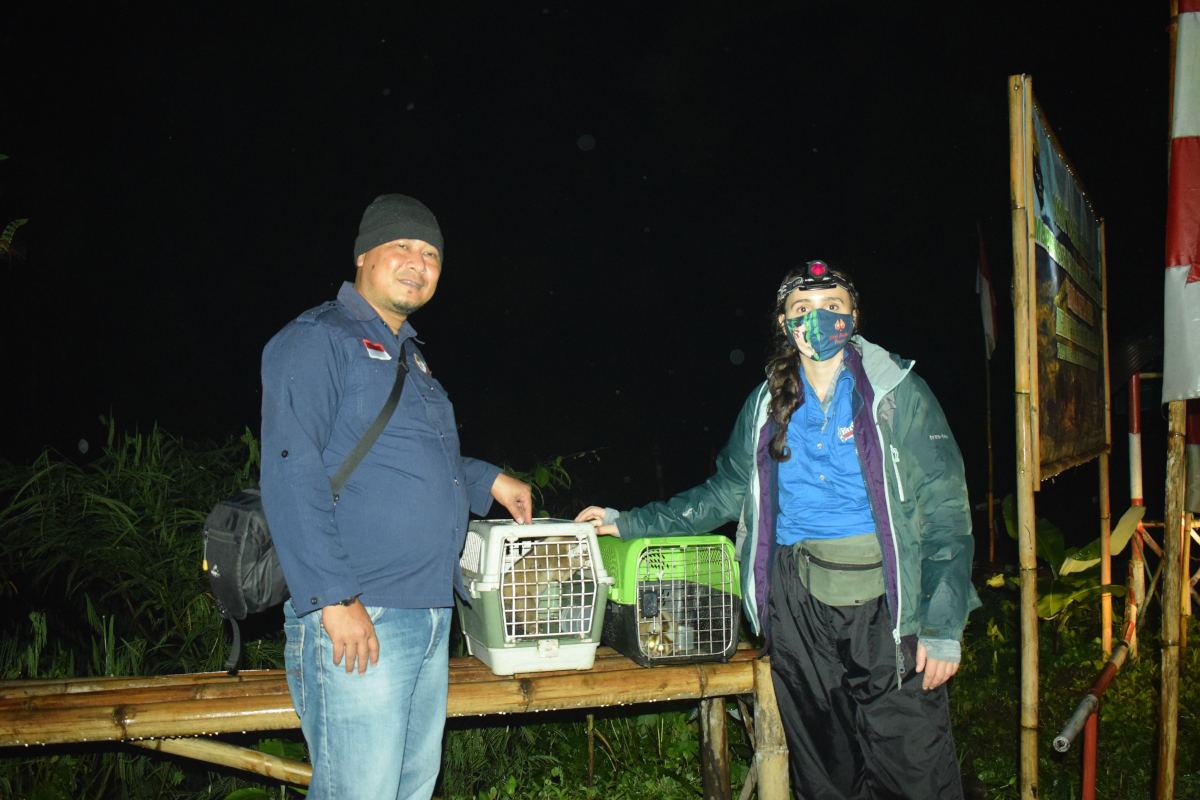
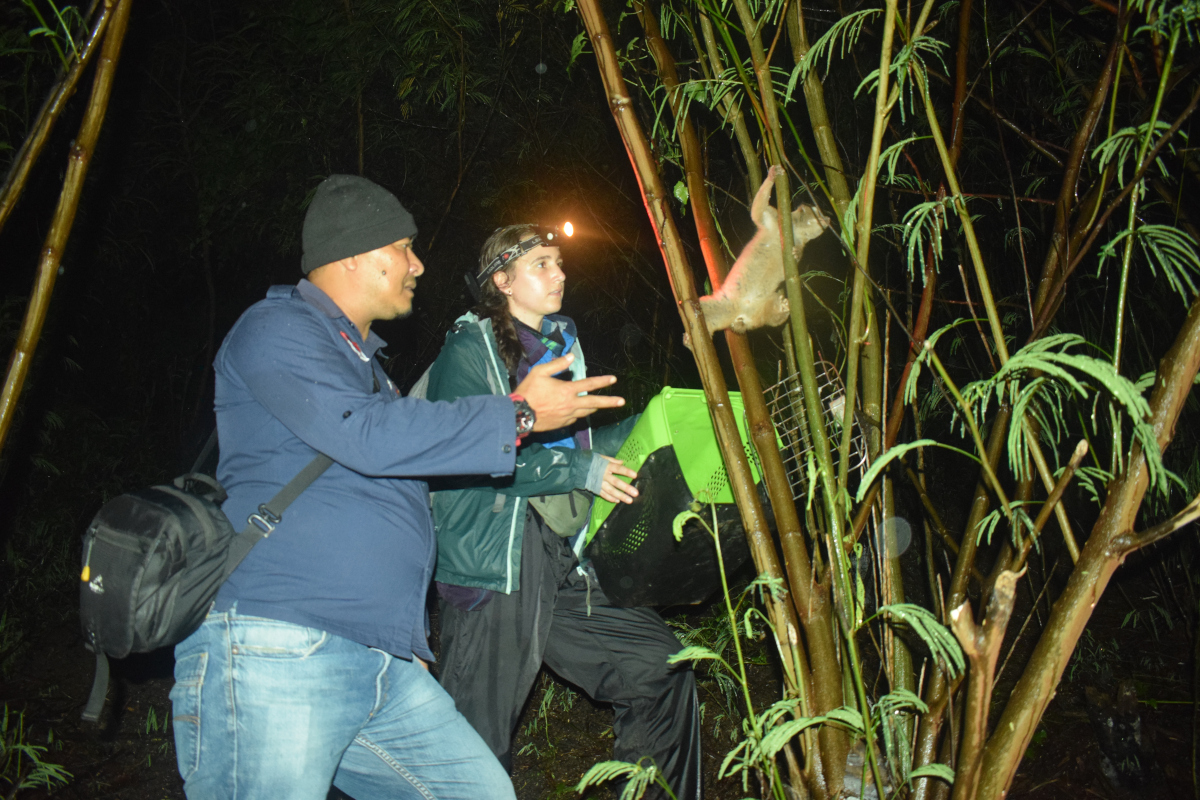
More recently, one of our followed lorises Shakti, daughter of Shirley and Fernando went missing from the study site. Now this is not as strange as it might sound, as at almost 2 years old Shakti was more than old enough to start the process of dispersing from her natal home range. Sometimes we are lucky and dispersing individuals will travel erratically through the study site for a few weeks, giving us plenty of notice that they want to leave their natal home range. In other cases like Shakti, the individual will simply disappear without a trace! After a week of searching for her signal at the borders of our study site we conceded that Shakti had well and truly dispersed, but the problem was, she was still wearing her collar. So, the team kitted up and headed out on motorbikes to search the area surrounding Mt Papadayan. Katey and Andri had taken Scoopy all the way up to the crater of Mt Papandayan (an active volcano) and were still unable to hear a signal when they got a call to let them know that another team consisting of research assistant Nabil and tracker Rahmat had managed to locate Shakti’s signal over 2km from the field site. Katey and Andri jumped back on Scoopy and travelled to meet the other teams where they parked up and hiked up the mountain to capture Shakti. Happily, we found her after a couple of hours and were able to safely remove her collar so that she is free to live the rest of her life wherever she so chooses!
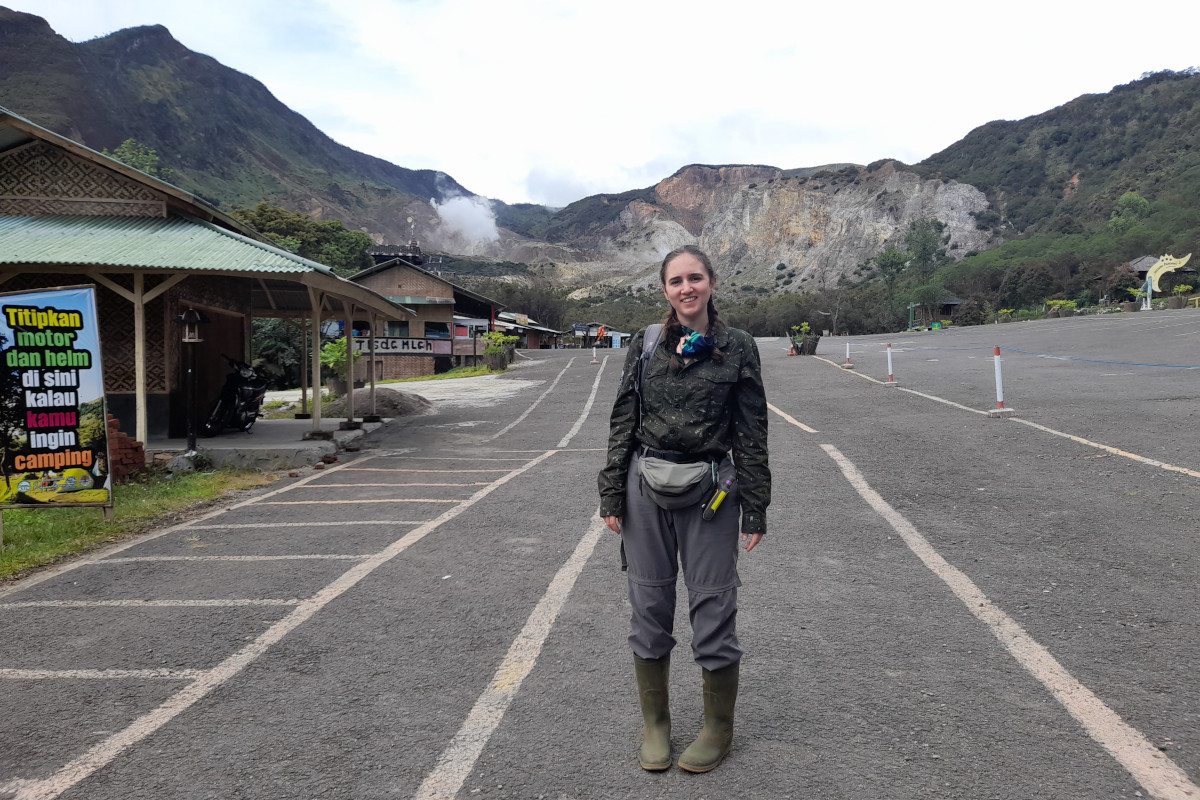
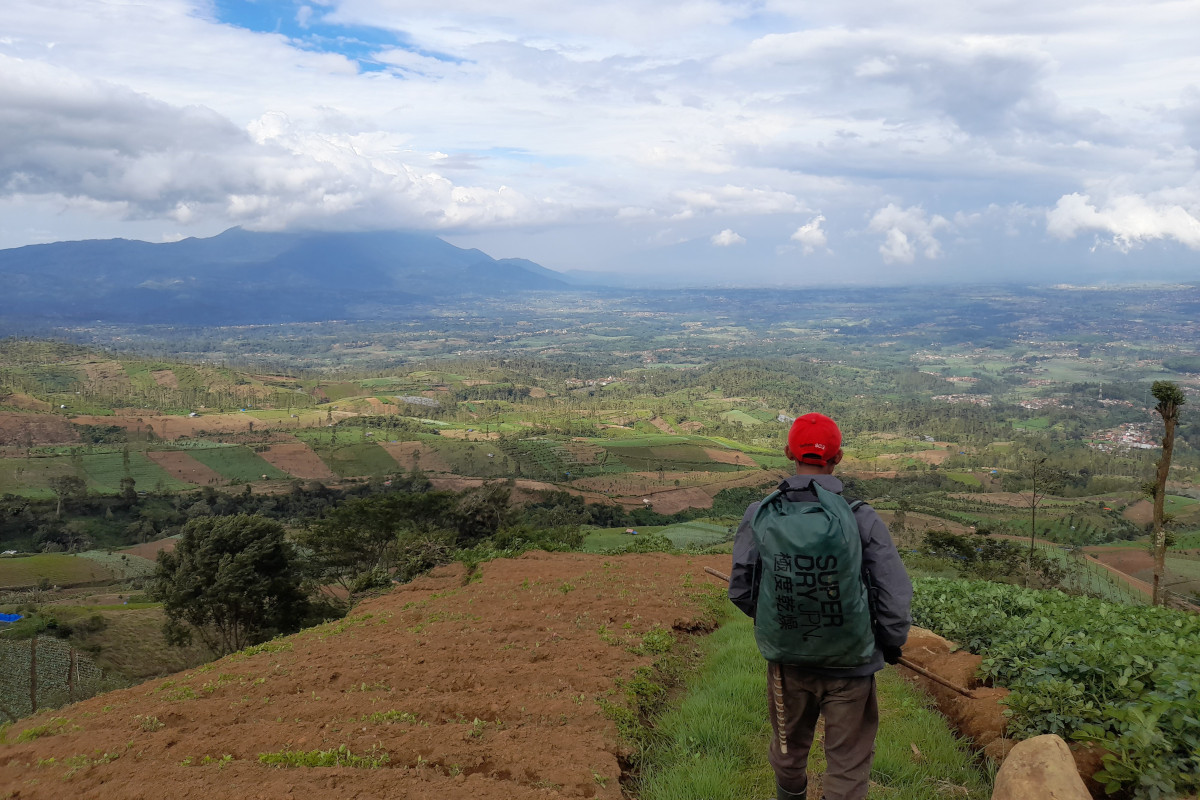
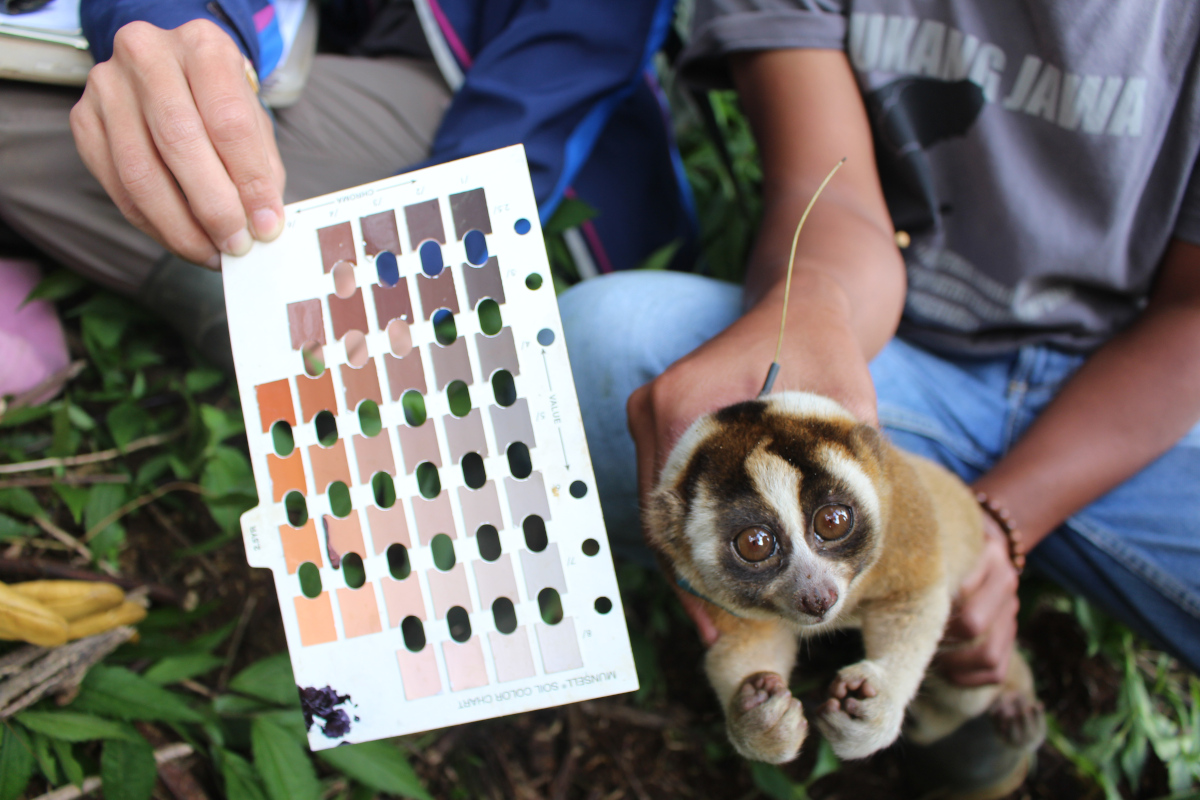
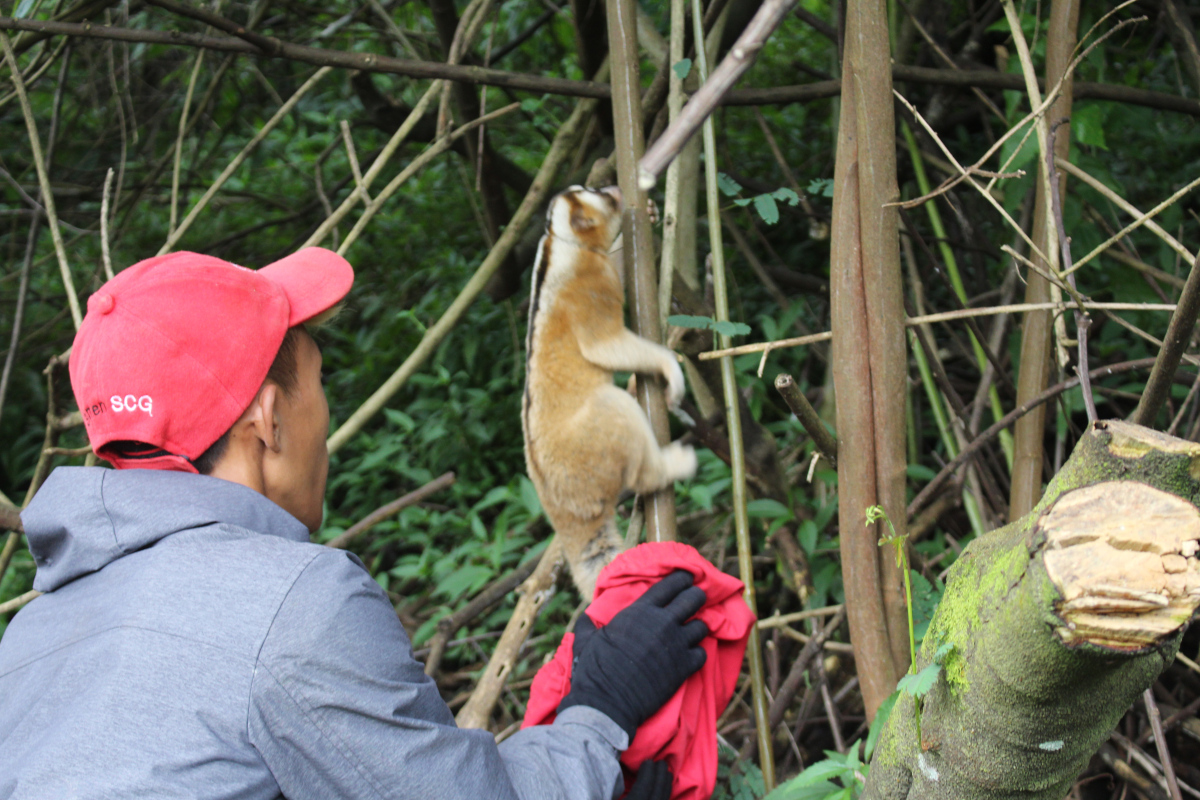
Of course, we use Scoopy for much more mundane activities too, like visiting local authorities, team days out and buying supplies for the research station. It’s fair to say that having Scoopy during the pandemic has been a key factor in LFP’s ability to continue our critical conservation work in Indonesia. Thank you Plumploris!

